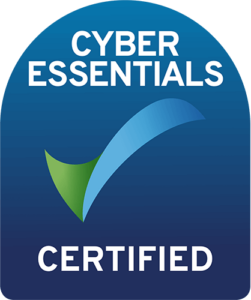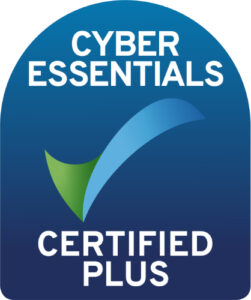Thinc insights
Business compliance is quite the task for SMEs. That said, with the right technology, you can achieve business compliance while continuing to serve your market to the best of your ability.
Business compliance is increasingly complex in the UK. Post-Brexit laws and regulations, new international trade deals and political changes both home and abroad have all made this a major challenge, especially for already stretched SMEs.
SMEs continue to face pressures to achieve full business compliance, across their finance departments, data teams and sustainability objectives, with each market placing its own demands. Unlike large enterprises, SMEs often lack the dedicated compliance teams required to make sure that all departments are adhering to the small print. This makes the risk of strained teams, fines or reputational damage even more daunting.
With technology being an enabler for SME compliance, we’re going to take you through the common pressures specific to some of the most common UK markets, along with SME compliance requirements that don’t discriminate when it comes to sector. We’ll then help you to understand how Thinc can help you ease these pressures with technology.
From our experience in amplifying SME growth across a variety of different UK markets, we’ve seen a host of common issues when it comes to different regulatory areas for business compliance. Let’s take a look in more detail at each sector.
(Should your sector not be covered here, simply get in touch with us and we’ll be happy to carry out a compliance review of your systems to assess where your SME may be falling short.)
For good reason, there are a plethora of regulatory areas that need to be considered when operating in manufacturing and chemicals. Business compliance must meet the required health and safety protocol, set out by schemes such as UK REACH (Regulation, Evaluation, Authorisation and the Restriction of Chemicals) and COSHH (Control of Substances Hazardous to Health), the Carriage of Dangerous Goods Act and UKCA Marking.
What’s more, there’s environmental reporting to adhere to, which can quickly become a headache for SMEs looking to take their next steps in their growth journey.
For SME compliance, the most common issues that come with achieving business compliance across the board are from tracking raw materials and chemicals through their supply chains. Often, already stretched teams find it tricky to maintain audit-ready records; but that’s where technology comes in.
At Thinc we’ve worked with many organisations facing such challenges. For example, through our expertise with SAP Business One, combined with the additional warehousing and distribution capabilities of Produmex, we can make traceability of batches much easier. Full records of audit trails are available, along with other process controls, to ensure that business compliance is served at every step of the supply chain.
In our run up to attending CHEMUK 2025, we recently hosted a webinar with Boyum and the Chemical Business Association, exploring everything you need to know about taking the pressure out of compliance so you can focus on growth. It’s available on-demand and we’re happy to provide some more information around the webinar or the solution, should you require it.
Wholesale and distribution businesses are also tasked with comprehensive regulations and requirements for business compliance. From import and export documentations and packaging waste reporting to customs declarations, there’s plenty for businesses to juggle, especially for SMEs who have limited resources. Such limits mean that SMEs are more likely to slip up, where manual processes are prone to error, leading to delays in the supply chain.
What’s more, it’s becoming increasingly critical that SME compliance is achieved with no room for error; costly tariffs impacting global trade have resulted in tighter profit margins, so any negative impact on the supply chain can result in a hefty profit loss.
Through Sage 200 or SAP Business One, regulations are much easier to manage. Workflows can be automated, with integration with customs systems for international trade possible for both solutions. Either solution allows data from across the solution to be stored in one place, so any information required at any point for creating import and export documentation can be quickly accessed and configured. Data is also updated in real-time, so there’s no concern over information submitted in declarations being out of date.
Another market with complex business compliance to meet is the construction industry. Building regulations and carbon reporting are a requirement, while CIS (the Construction Industry Scheme) and IR35 address contractors and off-payroll work, which must be accounted for to serve tax purposes.
Such regulatory requirements come with complex subtractor payments and HMRC compliance challenges, for SMEs and enterprises alike. Despite the complexities, an ERP system in the construction industry can go a long way to easing the burden. They make HMRC submissions much easier through their real-time reporting, while Sage 200 has CIS-compliant accounting available as a module from Sicon, amongst others that are specifically built with construction regulation in mind.
There are also complex business compliance criteria in the professional and financial services industry. Businesses must abide by Financial Conduct Authority (FCA) regulations and GDPR laws, while audit and financial reporting standards must always be met.
For SMEs in particular, manual document control can cost valuable time, as manually chasing down members of different teams to fill audit trail gaps causes bottlenecks in the reporting process.
With limited resources and manual processes that expose them to risk of non-compliance, SMEs can mitigate much of the risk with smart financial systems like Sage Intacct, which provides built-in compliance support, robust approval workflows, secure access controls and audit-ready reporting. It helps SMEs to report while meeting regulatory obligations, without the administrative burden.
Businesses operating in the retail and ecommerce space are also facing increasingly complex regulatory changes, from evolving VAT rules and digital sales tax, to advancing GDPR obligations and strict product labelling standards. Such regulations and standards are needed, addressing a rise in cyber-attacks to businesses in this space – including household names like Marks and Spencer and Co-op.
For SMEs, this pace of change, along with the challenges that come with online selling to customers overseas, makes real-time compliance a real challenge. Inaccurate stock records or delayed tax calculations can quickly escalate into financial or reputational risk.
There are, however, a number of solutions that can help ease the strain. Through AvaTax from Avalara, international tax rules and regulations can be calculated in seconds; a popular solution for those that deal with customers overseas. What’s also key is having solutions that are integrated. By connecting platforms like Shopify or Magento with an ERP tool such as Sage 200 or SAP Business One, using specialist tools to integrate systems through a specialist like Thinc, retailers can automate VAT treatment, streamline reports and benefit from real-time data across systems.
SMEs that have such a setup will experience far fewer manual errors, faster decision-making and greater piece of mind in a tightly regulated sector that’s only getting tighter.
Compliance is no longer sector-specific – it’s a universal challenge for UK SMEs. Whether you’re in any of the sectors covered, the need to keep up with fast-changing regulations is constant.
Take Making Tax Digital (MTD), for example. While it’s been rolling out for a few years, many SMEs still struggle to meet the requirements for digital VAT submissions and real-time financial data. Cloud-based systems like Sage 200 and Sage Intacct can help with MTD compliance – automating VAT calculations, submitting returns directly to HMRC and ensuring financial records are always accurate and audit-ready. For businesses unsure how to make the switch, partners like Thinc provide hands-on guidance to help migrate data, integrate existing systems and configure everything in line with compliance needs.
Then there’s sustainability reporting. Increasingly, SMEs are being asked by customers, supply chains and investors to disclose their carbon footprint and environmental practices. This can feel overwhelming – but the right systems can help. Whether it’s tracking usage data, capturing product origin information, or aligning with ESG frameworks, tools like SAP Business One and Sage 200 can be tailored to support sustainable business growth.
Another change in expectation comes from digital audit readiness, where regulators and investors expect to have instant, accurate data at their fingertips. Once again, the right financial ERP systems can help, as SMEs can use technology to turn a compliance headache into a competitive advantage, through having stronger digital audit readiness than their competitors.
Now that cybersecurity and GDPR compliance are front of mind in 2025, as threats grow more sophisticated and data protection standards tighten. Moving to a secure cloud environment helps protect sensitive customer and financial data, but it’s not just about software – it’s about having a complete cyber security strategy. Thinc works with businesses to assess their risk, choose the right platform and implement robust controls that meet modern data security standards.
Staying compliant doesn’t have to slow down operations, sap resources or increase overheads. With the right technology stack, SMEs can transform how they manage regulatory risk.
By centralising data across departments, businesses can reduce duplication and error, while automation takes care of routine tasks like VAT returns, CIS submissions and audit reporting. With strong audit trails and custom reporting, it’s easier than ever to respond quickly to the likes of regulators, auditors or HMRC.
And, thanks to powerful integrations – whether it’s linking eCommerce platforms or third-party applications – nothing gets lost in translation. Crucially, cloud-based solutions offer the scalability and agility that SMEs need to stay future-ready, whatever new regulations come next to your sector.
With the right ERP and financial management tools, SMEs can reduce risk and free up time for growth, utilising their already-stretched resources to the best of their ability.
At Thinc, we work across a whole host of different sectors to offer tailored solutions that align with regulatory demands and business goals.
Related Topics
Get in touch
Download the guide below to investigate how SAP Business One could benefit your business.


Enter your details into the contact form below, and one of our experts will be in touch to arrange a time to speak.
If you’re an existing customer looking for support, please e-mail servicedesk@wearethinc.com, or visit our support page where you can download our remote support apps.